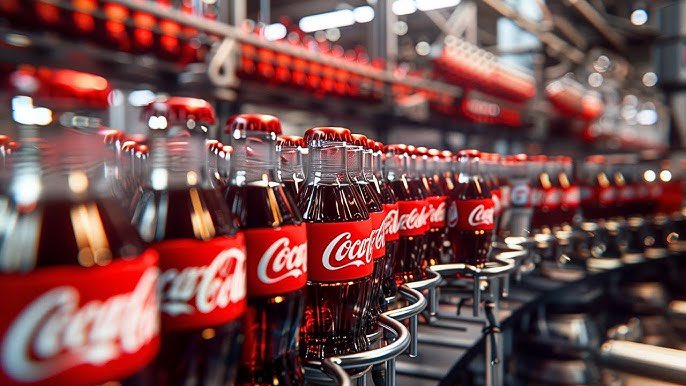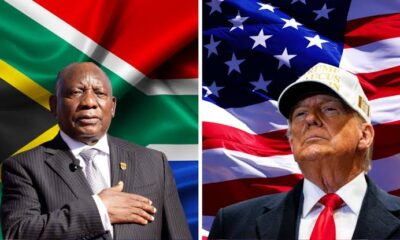411
Trump Announces Coca-Cola to Ditch Corn Syrup for Cane Sugar in the U.S.

South Africans already enjoy the ‘real’ version of Coke, but America may be catching up.
If you’re in South Africa, the fizzy, sugary taste of Coca-Cola sweetened with real cane sugar is nothing new. But in the U.S., millions have spent decades drinking a version of Coke made with high-fructose corn syrup (HFCS)—a cheaper, more processed sweetener that’s long been controversial.
That could be about to change.
Former U.S. President Donald Trump took to his social media platform, Truth Social, to announce that Coca-Cola has agreed to switch back to cane sugar for its American products.
“I have been speaking to Coca-Cola about using REAL Cane Sugar in Coke in the United States, and they have agreed to do so… It’s just better!” Trump wrote.
While Coca-Cola hasn’t officially confirmed the timeline or scope of the change, it did post a short statement on its website, thanking Trump for his “enthusiasm” and hinting at “product innovations” to come.
Why is America still using corn syrup?
Since 1985, Coca-Cola in the U.S. has been sweetened with HFCS, largely due to rising global sugar prices and government subsidies that made corn the cheaper alternative. The move helped cut costs, but many consumers have complained for years that the taste of American Coke simply doesn’t compare to the cane sugar versions found in Mexico, Europe, and Africa.
In countries like South Africa, the use of cane sugar in fizzy drinks is standard. And for many, it’s not just about taste, it’s about health, too.
Is cane sugar better than HFCS?
The science isn’t black and white. Both cane sugar and HFCS are added sugars, and excessive consumption of either can contribute to obesity, insulin resistance, and heart disease. But HFCS contains a higher concentration of fructose, which some studies link more strongly to liver fat accumulation and metabolic issues.
“We recommend keeping added sugars to under 50 grams per day—no matter the source,” said one registered dietitian. “A single 330ml can of Coke already contains about 39 grams.”
In other words, cane sugar may be slightly less processed, but it’s still sugar.
Still, the move aligns with growing pressure in the U.S. for cleaner labels and less processed ingredients. Robert F. Kennedy Jr., a U.S. presidential candidate, has been running a “Make America Healthy Again” campaign, which calls for eliminating HFCS from processed foods entirely.
A more global taste?
For many American Coke fans, the switch could mark a return to the classic Coca-Cola taste that’s loved across the world. In fact, limited-edition “Mexican Coke” made with cane sugar has developed a cult following in the U.S., often sold at a premium in glass bottles.
If Trump’s announcement holds true, the global Coca-Cola experience may finally become more unified.
And for South Africans? We’ll continue sipping the real thing, like we always have.
{Source: IOL}
Follow Joburg ETC on Facebook, Twitter , TikTok and Instagram
For more News in Johannesburg, visit joburgetc.com



























